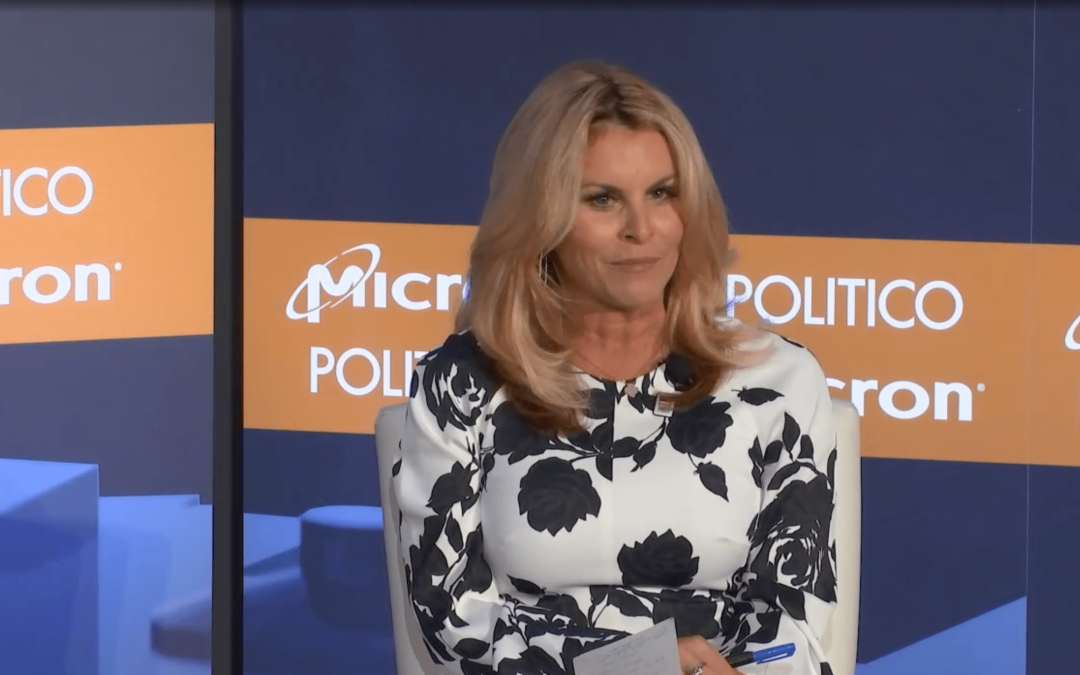WASHINGTON – Congress needs to act on immigration reform for high-skilled workers to fill jobs in the growing U.S. semiconductor industry, a Department of Commerce director and industry experts said on Tuesday.
“We are imposing a self-inflicted wound on our country and this industry without high-skilled immigration reform,” said David Isaacs, an executive from the Semiconductor Industry Association, a leading technology lobbying group whose clients include Intel, Nvidia and Qualcomm.
The panel discussion, co-hosted by POLITICO and the U.S. chips manufacturer Micron, was held shortly after the first anniversary of the CHIPS and Science Act. The law, one of the Biden administration’s hallmark achievements, plans to invest $52 billion in the American semiconductor industry to expand domestic manufacturing, with billions more for science research and development in the area.
The combination of public and private investment into the semiconductor industry would create as many as 85,000 jobs by 2030, according to a joint report by the SIA and Oxford Economics. But because of a shortage of skilled workers, the report projects that 80% of those positions, which include engineers, technicians and computer scientists, would go unfilled.
Adrienne Elrod, the director of external and government affairs at Commerce’s CHIPS Program Office, said the U.S. needs to “open every single door” to fill the newly created jobs in the technology sector. Her department and the Biden administration have made clear their support for immigration reform, but will ultimately need bipartisan support on Capitol Hill for any legislation on the issue, she said.
“If you were coming over here from another country, and you’re being trained by Stanford or … MIT to work in the semiconductor industry, you should be able to stay over here and work in these jobs,” Elrod said.
The CHIPS Act originally included provisions that would ease immigration restrictions for foreign nationals with an advanced degree in STEM-related fields. But opposition from Senate Republicans, including Sen. Charles Grassley (R-Iowa), led to those provisions being cut from the final version of the bill.
High-skilled immigration reform is necessary to address the short-term labor shortage in the semiconductor industry, and SIA is actively lobbying on the issue, Isaacs said. But the country is facing fierce political challenges to any efforts to change immigration policy largely because of attention on illegal immigration and the surge of migrants seeking asylum. Therefore, Isaacs said he does not expect any policy breakthrough soon.
The Department of Homeland Security on Monday introduced a set of proposals to streamline the application process for the H-1B visa for foreign employees in specialty fields. Those proposals, however, do not lift or increase the annual cap on the number of visas, which stands at 85,000 and are awarded by a lottery system.
The changes proposed would also take steps to ensure that applicants and companies can’t game the system by submitting the names of individuals multiple times in an effort to increase their chances of winning one of the coveted slots.
In the long run, the U.S. also needs to invest in workforce development and STEM programs in K-12 education, so there can be a pipeline of college students going into STEM-related fields, said Michael Spencer, the interim electrical and computer engineering department chair at Morgan State University.
Spencer said he is encouraged by the CHIPS Act’s investment in education and workforce development, but he would like to see those efforts accelerated.
Shari Liss, the executive director of SEMI Foundation, a group with a track record of working with the Department of Commerce on workforce development programs, agreed. She said she would like to see a national campaign to improve the visibility of the semiconductor industry as a career option and to make it more accessible to a diverse set of students.
“Introducing kids to this as a viable pathway, as an industry, early on is going to be really important,” Liss said. “We have to start planting that seed early.”

